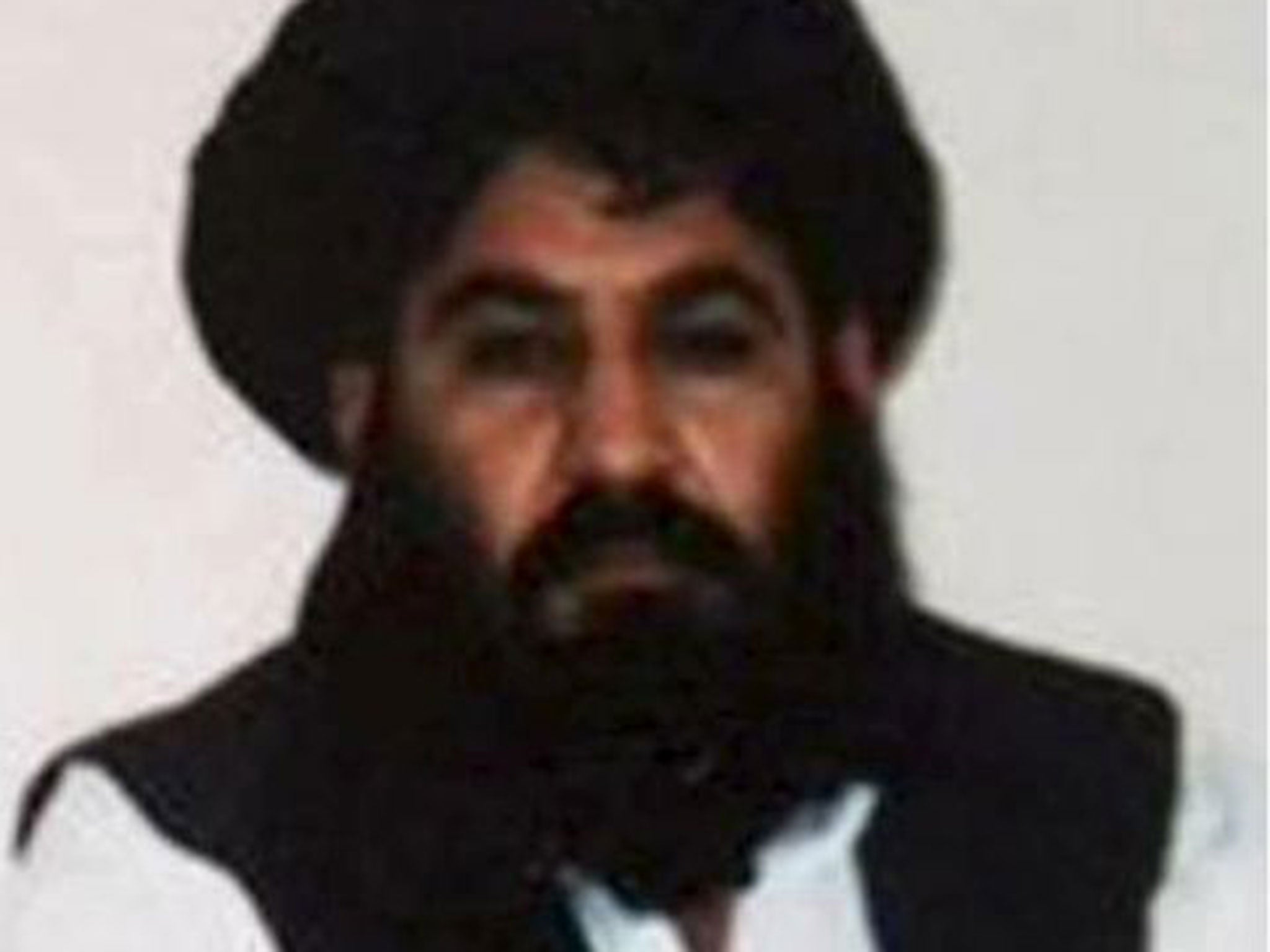What the US killing of Taliban leader Mullah Akhtar Mansour means for the future of Afghanistan
His death will be a blow to friends in the Pakistani military and security establishment and the start of a renewed US engagement in Afghanistan – a war which President Obama had pledged to end


Your support helps us to tell the story
From reproductive rights to climate change to Big Tech, The Independent is on the ground when the story is developing. Whether it's investigating the financials of Elon Musk's pro-Trump PAC or producing our latest documentary, 'The A Word', which shines a light on the American women fighting for reproductive rights, we know how important it is to parse out the facts from the messaging.
At such a critical moment in US history, we need reporters on the ground. Your donation allows us to keep sending journalists to speak to both sides of the story.
The Independent is trusted by Americans across the entire political spectrum. And unlike many other quality news outlets, we choose not to lock Americans out of our reporting and analysis with paywalls. We believe quality journalism should be available to everyone, paid for by those who can afford it.
Your support makes all the difference.The end of Mullah Akhtar Mansour, the head of the Taliban, in an American drone strike is a killing of great significance violently highlighting the shifting dynamics of conflict and intrigue in Afghanistan and Pakistan.
The usual area of US air attacks hitherto had been the tribal belt of north and south Waziristan where the targets had been al-Qaeda and foreign fighters. This time it was in Balochistan, where the Taliban’s governing Quetta Shura is believed to be based, and the target was a senior member of the Taliban.
Furthermore, Mullah Mansour was said to have been groomed by the Pakistani secret police, ISI, and was seen as their candidate to take over in the fractious struggle following the death of Mullah Omar.
It was the influence which factions of the Pakistani military and the ISI wields over the Taliban THAT led Afghan president Ashraf Ghani to reverse the policy of enmity of his predecessor, Hamid Karzai, with Islamabad.
On assuming power the Afghan leader visited the Pakistani military and ISI hierarchy before meeting the country’s political leadership. The hope was that the people with real clout with the insurgents would be able to bring them to the negotiating table. That did not happen; instead the level of bombings and shootings in Afghanistan, including on the capital, Kabul, rose alarmingly.
President Ghani has lately carried out a volte face and demanded that Islamabad take action against the Afghan Taliban who move around relatively freely inside Pakistan. The Pakistani position has remained that the Taliban need to be brought into the peace process and punitive action would only drive them underground. Islamabad also persuaded the Americans that this is the way to proceed; there have been hardly any drone strikes against the Afghan Taliban leadership in recent years.
What appears to have changed was Mullah Mansour’s growing closeness to al-Qaeda which is now re-establishing itself in Afghanistan, joining Isis and the Taliban in a resurgent jihad. It led to Ayman Zawahiri, the head of al-Qaeda, pledging fealty to Mullah Mansour and the Taliban leader promising co-operation in return.
The rising violence in Afghanistan with the arrival of al-Qaeda and Isis has meant that it is highly unlikely President Obama would be able to cut troop numbers in Afghanistan, as had been planned this year. There is a growing feeling in the US administration that drastic steps have to be taken.
The Americans decided that Mullah Mansour and his coterie were not going to help to bring about negotiations but has, instead, become a hindrance to it. President Obama, it was reported in Washington, had personally authorised the strike. John Kerry stated: “We have long said Mansoor posed an imminent threat to us and to Afghan civilians. This action sends a clear message to the world that we will continue to work with our Afghan partners.”
The Afghan intelligence service, the National Directorate of Security, seemed to have details of Mansour’s death before the Pakistanis. The US Secretary of State refused to say whether Islamabad informed of the attack before it took place. He had spoken to the country’s Prime Minister, Nawaz Sharif, but that was on Sunday morning after the air strike.
The Pentagon sought to stress that Mansour had become “an obstacle to peace and reconciliation between the government of Afghanistan and the Taliban. Since the death of Mullah Omar and Mansour’s assumption of leadership, the Taliban have conducted many attacks that have resulted in death of tens of thousands of Afghan civilians and Afghan security forces as well as numerous US and coalition personnel”.
The killing of Mansour will boost President Ghani in Afghanistan where he has been facing severe criticism over growing strife and his failed overture to Islamabad. It will be seen as a blow to the Mullah’s friends in the Pakistani military and security establishment and start another struggle for the Taliban leadership. The US, meanwhile, is embarking on renewed aggressive policy on Afghanistan, a war in which President Obama had pledged to end American involvement.
Join our commenting forum
Join thought-provoking conversations, follow other Independent readers and see their replies
Comments